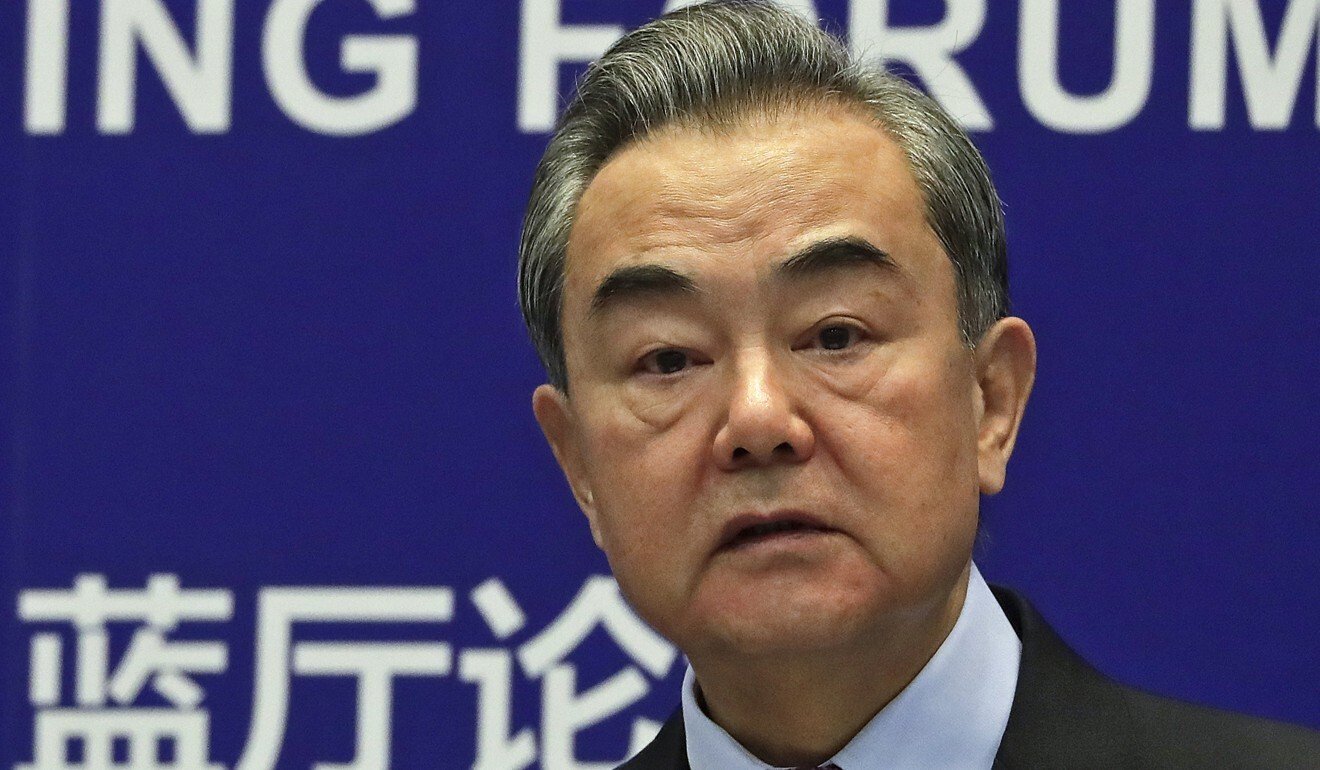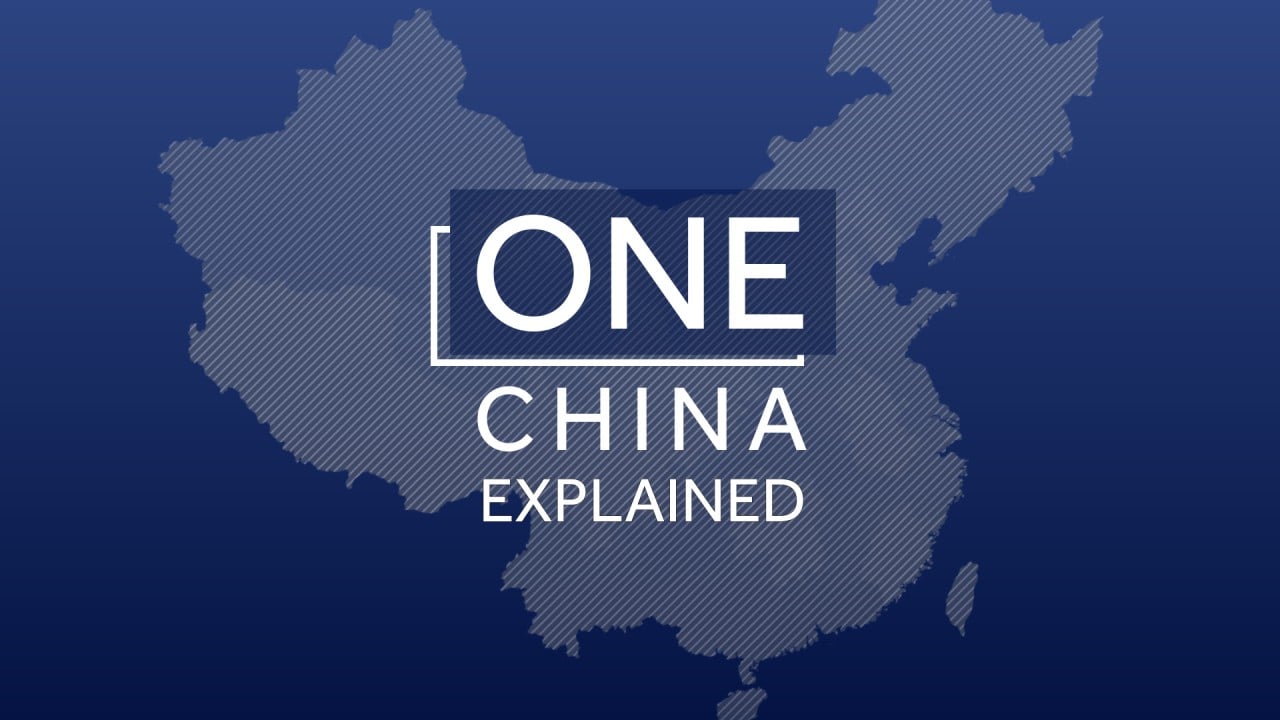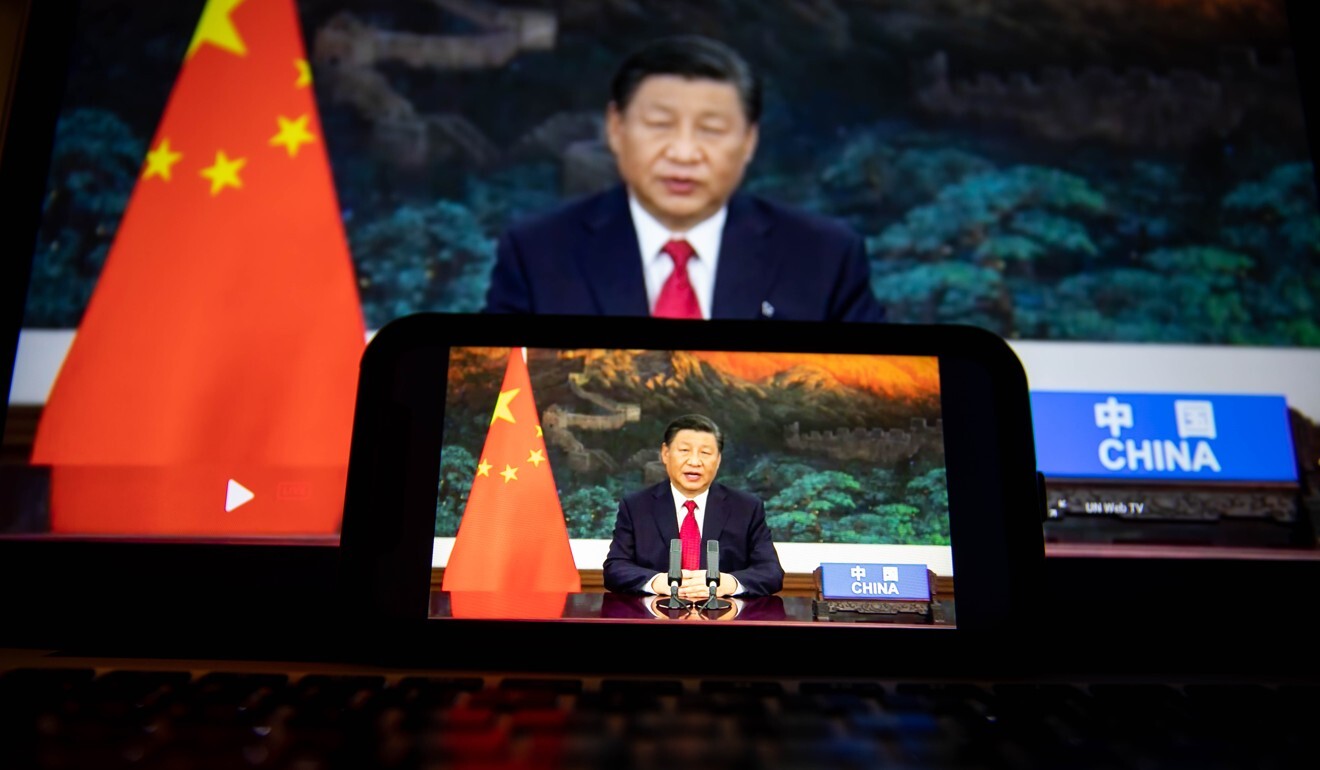
EU defends plan to expand Taiwan relations ‘without recognition of statehood’
- Statement by EU top diplomat Josep Borrell comes in first official ‘strategic dialogue’ with Chinese Foreign Minister Wang Yi since June 2020
- Video conference comes as EU-China relations are strained on a number of fronts
The European Union defended plans to expand its relationship with Taiwan – though “without any recognition of statehood” – on Tuesday during the first top-level meeting between Chinese Foreign Minister Wang Yi and the EU‘s top diplomat, Josep Borrell, in more than a year.
The statement by Borrell came amid a deepening row between Lithuania and China, over Lithuania’s decision to allow a “Taiwanese Representative Office” in Vilnius – a departure from the typical European designation of “Taipei Representative Offices”.
US backs Lithuania as China applies pressure over Taiwan office
At a strained time for bilateral relations, Wang spoke by video conference with Borrell in their first “strategic dialogue” since June 2020.
Neither side mentioned Lithuania directly in their statements about the session, but the subtext was clear.
Beijing has accused Lithuania of breaching the EU‘s adherence to the diplomatic “One China” principle – a claim denied by both Brussels and Vilnius – and moved to punish Lithuania by halting freight trains from China and revoking certain export licenses for Lithuanian companies.

Wang warned Borrell that the principle remained “the political basis for China to develop relations with the EU and its member states”.
“If the foundation is not strong, the ground and the mountains will shake,” Wang said.
The official Chinese readout reported that Borrell assured Wang that “the EU will not conduct official exchanges” with Taiwan.

02:17
‘One China’ explained
But the EU has already been urged by the European Parliament to begin laying the groundwork for an investment pact with Taiwan.
Speaking ahead of the EU-China summit, the parliament’s lead member on a new Taiwan policy guidance paper, Charlie Weimers, told the South China Morning Post that Borrell had to “express unequivocal support and solidarity for Lithuania in the country’s recent dispute with China, condemn the Chinese economic sanctions on Lithuania and, in coordination with the council, take appropriate measures”.
In its new Indo-Pacific strategy, released this month, the EU said it would seek “trade and investment relationships with partners with whom it does not have trade and investment agreements, such as Taiwan”.
Wang and Borrell also discussed human rights issues, with China warning the EU against lecturing it on such matters, according to Chinese state media.
Don’t be ‘fooled by lies and rumours’, China tells Nato
Wang told Borrell that China was “willing to conduct human rights dialogue” but “does not accept human rights ‘teachers’ and opposes interfering in other countries’ internal affairs under the pretext of human rights”.
Borrell said that the EU would “respect China‘s sovereignty and has no intention to use this to preach to the Chinese side”, according to Beijing’s readout.
The EU statement said that Borrell “stressed the necessity to engage on human rights issues and to resume the EU-China Human Rights Dialogue, as a key component of a mature relationship”.
The meeting came at a delicate geopolitical moment. EU-China relations have taken a nosedive this year, leading to tit-for-tat sanctioning in March, followed by the collapse of a long-negotiated investment pact in May.
And on Sunday, the German federal election heralded the end of the Angela Merkel era, with Beijing set to lose its most influential partner in Europe.
Merkel and Xi discuss ‘close economic ties’ in likely last official call together
Merkel will remain chancellor and in charge, but only as a caretaker until a coalition government is formed. Her Christian Democratic party suffered an embarrassing defeat, and speculation is rife that a coalition led by the Social Democrats and including two more hawkish parties toward China, the Greens and the Liberals, could signal a shift in Germany‘s long-standing China-friendly policy.
Despite this, Wang told Borrell he hoped the EU and China would “carry out the joint construction of the Belt and Road Initiative and the EU’s connectivity initiative”. Wang also voiced support for “deepening vaccine cooperation and continuing to promote cooperation in technological innovation, finance, energy and agriculture”.

According to the EU account, Borrell noted that “while disagreements still persisted, the EU and China needed to continue engaging intensively in a number of important areas”.
China also pointed to the recent “increase in contact and dialogue between China and the EU”, adding that “we must consolidate this positive momentum, increase political mutual trust, properly manage differences”.
Also on the agenda was the newly announced Aukus security arrangement involving the US, Britain and Australia that will eventually see Canberra provided with a fleet of nuclear-powered submarines, but which immediately signalled a tightening of the campaign to contain China in the Indo-Pacific.
EU unveils Indo-Pacific strategy, admits new ‘Aukus’ alliance was a surprise
The EU was not consulted about the agreement, which China described in scathing terms.
Wang said that “at a time when the international community is generally opposed to cold war and division, the US flagrantly violated its policy statement of not engaging in a new cold war, organised gangs to concoct Anglo-Saxon ‘small circles’, and placed geopolitical interests above international solidarity”.
Borrell, in contrast, “welcomed the joint statement by Presidents Biden and Macron” and “referred to his fruitful exchanges in the margins of UN General Assembly, including with his US counterpart, Secretary of State Antony Blinken”.

